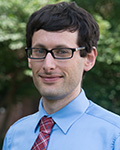2018
Udi Greenberg
- Associate Professor
- Dartmouth College

Abstract
This project explores a dramatic transformation in European thought and politics: the sudden end of animosity between Catholics and Protestants. In the 1930s, church leaders, missionaries, and politicians suddenly began to advocate for interconfessional cooperation, which culminated in the formation of powerful pan-Christian parties and organizations after World War II. Using a wide array of sources, this book investigates how transformations in global politics—especially the rise of Nazism, the unfolding of the Cold War, and the process of European decolonization in Asia and Africa—sparked this change. It shows how fears of secularism led Catholics and Protestants to view each other as vital allies in what they envisioned as a global intellectual and political campaign to defend the Gospel. Through this story, this book examines why religious pluralism in postwar Europe simultaneously expanded tolerance (among Christian communities) while it continued to marginalize other minorities.

